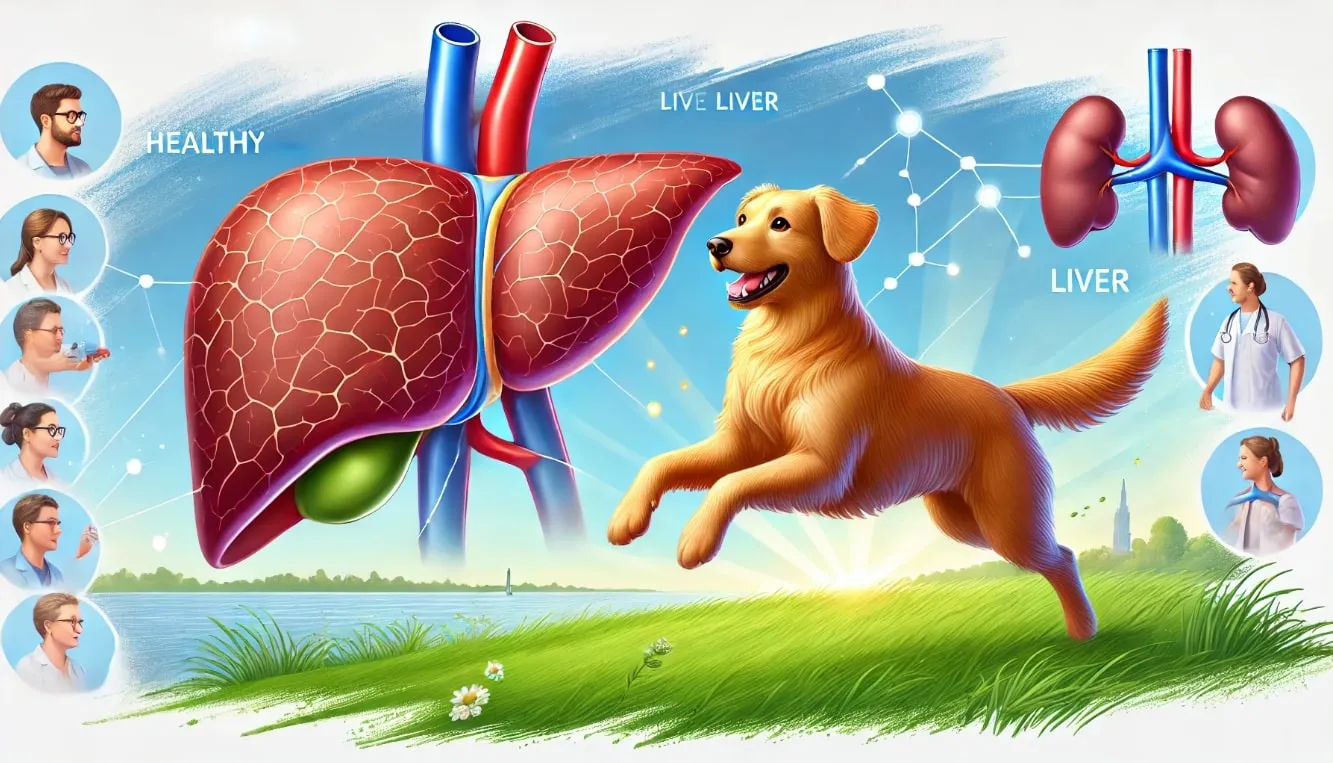Liver Issues

Liver issues can significantly impact your dog’s health and well-being. The liver is a vital organ responsible for various essential functions, including detoxification, metabolism, and the production of vital proteins. Understanding the signs, causes, and management of liver problems can help you ensure your dog receives the best care possible.
What Are Liver Issues?
Liver issues refer to any condition that affects the normal functioning of your dog’s liver. Common liver problems include liver disease, liver inflammation (hepatitis), liver tumors, and liver failure. These conditions can range from mild to severe and may require different approaches to treatment and management.
Signs and Symptoms
Early detection of liver issues can make a significant difference in the effectiveness of treatment. Watch out for the following signs and symptoms:
- Jaundice: Yellowing of the gums, eyes, and skin.
- Loss of appetite: Reduced interest in food, leading to weight loss.
- Vomiting and diarrhea: Frequent gastrointestinal disturbances.
- Increased thirst and urination: Drinking more water and urinating more frequently.
- Lethargy: Lack of energy and increased fatigue.
- Abdominal swelling: Enlargement of the abdomen due to fluid buildup.
- Behavioral changes: Confusion, disorientation, or aggression.
Causes of Liver Issues
Several factors can contribute to liver problems in dogs, including:
- Infections: Bacterial, viral, or fungal infections that affect the liver.
- Toxins: Ingesting toxic substances such as certain medications, plants, or chemicals.
- Genetic predisposition: Some breeds are more prone to liver issues due to genetic factors.
- Poor diet: Inadequate nutrition or a diet high in fat can strain the liver.
- Aging: Older dogs are more susceptible to liver problems.
- Other health conditions: Conditions like diabetes or heart disease can impact liver function.
Diagnosis
If you suspect your dog has liver issues, it’s crucial to consult a veterinarian. The vet may perform various diagnostic tests, including:
- Blood tests: To check liver enzyme levels and overall liver function.
- Ultrasound: To visualize the liver’s structure and detect abnormalities.
- X-rays: To identify any changes in the liver’s size or shape.
- Biopsy: A sample of liver tissue may be taken for further examination.
Treatment and Management
The treatment for liver issues depends on the underlying cause and severity of the condition. Common approaches include:
- Medication: To manage symptoms and treat underlying infections or conditions.
- Dietary changes: A special diet low in fat and high in digestible proteins may be recommended.
- Supplements: Vitamins and supplements to support liver function.
- Fluid therapy: To maintain hydration and support liver health.
- Surgery: In severe cases, surgery may be required to remove tumors or correct abnormalities.
Prevention
While not all liver issues can be prevented, you can take steps to reduce your dog’s risk:
- Regular vet check-ups: Routine veterinary visits can help detect liver issues early.
- Balanced diet: Feed your dog a high-quality diet appropriate for their age and health status.
- Avoid toxins: Keep harmful substances out of your dog’s reach and follow vet recommendations for medications.
- Maintain a healthy weight: Prevent obesity through proper diet and exercise.
- Vaccinations: Ensure your dog is vaccinated against diseases that can affect the liver.
Conclusion
Liver issues in dogs can be serious, but with prompt diagnosis and appropriate care, many dogs can manage their condition and maintain a good quality of life. Always consult your veterinarian if you notice any signs of liver problems in your dog. Early intervention is key to effective treatment and management.
For more information or support, join our Pack Platform to connect with other dog parents and experts.